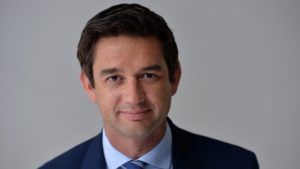Louise Kernohan, co-manager, UK Equity and UK Opportunities funds, BNY Mellon Investment Management
There is a lot of newsprint devoted to the sprawling macroeconomic trends – inflation, the situation in China, the potential for Federal Reserve tapering. While these may influence markets in the short term, says Louise Kernohan, co-manager on the BNY Mellon UK Equity and UK Opportunities funds, it is tough to determine the outcome with any degree of certainty. As such, using them as the basis for bold portfolio decisions is risky.

Kernohan prefers to seek out longer-term trends that will last for many years, rather than just a few months. These are far more predictable, she says.
“Will we still be talking about inflation in a year’s time? Trends such as digitalisation are far more enduring. The pandemic has pushed a lot of companies down this path, with around 85% of chief executives now saying they will increase digitalisation in their business. All of us are using technology a lot more.”
This means far more capital directed towards the sector and she sees no sign of that slowing, pointing to faster processing, greater data capture and cloud computing. These are vast sectors, appealing to investors with an eye on the long term.
Kernohan adds that the UK tech sector is often under-appreciated. “When people think of technology, it’s of Google or Microsoft, but there is a huge amount of value chain in the UK,” she says.
“We have lots of technology companies but they happen to be smaller. I’d highlight Darktrace or Alphawave, small companies that have a significant runway of growth.”
However, investors need to be active to access these opportunities. As it stands, technology is only around 2% of the FTSE All-Share. She says fund managers need to move away from the benchmark if they are going to access these investment areas.
Healthcare is another area of focus in the fund. Kernohan says the industry is going through a revolution. “There is a lot of science happening.” Even beyond the progress made during the pandemic on vaccines and treatments, there are exciting developments on cancer, for example.
Astrazeneca has just announced a new breast cancer drug, Enhertu. There is huge progress in diagnostics. She also holds ‘Amazon of antibodies’ Abcam, which sells antibodies and reagents to laboratories.
She believes themes like this should be defensive through different market conditions. “Investing in areas such as commodities can do well in the short term. However, they are hugely cyclical and there is always a risk of losing in the next downturn. We prefer assets linked to non-discretionary, repeat business. People keep taking medication whatever the economic outlook.”
Biography
Louise Kernohan is a UK equities portfolio manager at BNY Mellon Investment Management where she manages the UK Equity and UK Opportunities funds, alongside Simon Nichols and Ben Smith. Kernohan has more than 15 years of experience managing active equity portfolios, having joined BNY Mellon IM in November 2020 from Aberdeen Standard Investments (ASI) where she was an investment director of UK equities.
Storm Uru, fund manager, Global Dividend fund, Liontrust Asset Management
For Storm Uru, the old model of income investing is broken. It is focused on industries with slow growth, high leverage or both, such as tobacco, telecoms or oil and gas. Dividend cover is poor and innovation is thin on the ground.

For the management of Liontrust Global Dividend, Uru opted to start with a clean slate. Rather than picking out companies paying a high yield today, he decided to look at global businesses focused on innovation that could grow dividends over time.
He says: “This approach means you are investing in better businesses, which should generate a better overall outcome. Investors have to be OK with generating less income today.” The fund’s yield is only around 2-2.5%, but has grown consistently and sustainably.
This total return focus has been a notable advantage at a time when traditional income stocks have been out of favour. Relatively few global income funds have beaten the MSCI World Index, but this fund has outpaced it.
It also means the fund will look very different to others in the sector. For example, among the top holdings is American Express. Not only does this benefit from the resumption of consumer spending and overseas travel after the pandemic, it is also a turnaround story.
It had previously been left behind by Mastercard and Visa, but has now invested heavily to improve its coverage and the number of merchants that accept its cards. The move to online shopping has also helped.
The fund recently picked up a number of companies where dividends are recovering, including Compass, Amadeus and Safran. Uru says: “We came in after they cut dividends and this proved to be a fantastic decision. In many cases the competition has weakened or left the market. Some of them have cut costs. They’re now in strong competitive positions.”
This is an example of how opportunities can emerge from a crisis. This is not only true for the pandemic but for individual companies as well. Uru draws from a watchlist of 120 global leaders.
BP is close to being on this list for the first time. While companies usually find it difficult to make big strategic pivots, the Macondo disaster has helped BP rethink its business.
“Its low-carbon business model is very interesting. We are watching to see if they hit their targets.”
Biography
Storm Uru co-manages the Liontrust Global Dividend and Liontrust Global Equity funds with James Dowey by applying the firm’s global innovation approach to the global equity investment process. He also carries out research on the industrials sector within the global equity team. He joined Liontrust in October 2019 as part of the acquisition of Neptune Investment Management, which he joined in 2014.
Phil Macartney, fund manager, European equities, Jupiter
Europe has a history of turmoil. From the German elections to French submarines, the region is used to disruption. But, in reality, says Phil Macartney, a fund manager in the European equities team for Jupiter, Europe is looking healthier than it has for some time.

While the US and China are at loggerheads, he says, Europe has managed to steer a middle path, trading with both sides and rising above troubled geopolitics. This is a good backdrop for European companies to grow earnings in a climate of global economic recovery.
Equally, Europe has a number of key industries where it is difficult for other regions to compete. Macartney says: “On luxury goods, for example, it is difficult for China or someone else to replicate LVMH, with its brand recognition and heritage. Brand is a major barrier to entry and Europe has it in spades.”
There are other areas where Europe leads the way, on the green agenda, for example. Macartney says there is a real will from governments to get carbon neutrality.
He says: “Europe is well ahead on many sustainability issues. When its companies are assessed against their competitors, Europe wins out.”
He gives the example of Samfy in France. This is the market leader in automated awnings. Buildings are a significant contributor to energy usage, so the ability to close blinds when it’s sunny is becoming increasingly important. The group is taking market share.
Despite the US stealing the limelight, Europe is also home to some great tech leaders. Jupiter is an investor in Netherlands-based ASML. It has become the go-to supplier for semi-conductors at a time when there’s a global shortage. Equally, it has more sophisticated technology.
Heritage, brand, and technical knowhow all contribute to the wealth of opportunities in European markets. There are some areas, says Macartney, in which Europe is unequalled.
Biography
Phil Macartney is a fund manager in Jupiter’s European equities team. Before joining Jupiter, he worked at Columbia Threadneedle where he spent five years as a vice-president and fund manager on the UK equities team. Before that, he was a founding member of Bramshott Capital, where he worked for four years following three years as a research analyst at Moore Capital.
Roberta Barr, head of value team ESG, Global Sustainable Value, Schroders
Value investing has often been seen to be at odds with sustainable investing. The argument runs that stocks that score highly on environmental, social or governance criteria have been bid higher as more investors have moved into this part of the market. Not so, according to Roberta Barr, head of value team ESG at Schroders.

Barr manages the Schroder Global Sustainable Value Fund and points out: “We wouldn’t have launched it if we didn’t think it was possible.” The fund invests in unvalued ESG leaders and she is clear there is no dilution of the group’s value investment process.
They have tested it. They found no meaningful difference in performance for excluding certain areas of the market. The slight difference was down to the relative performance of oil and gas, which is excluded from the fund.
Equally, when they looked at ESG leaders, they found more in the cheapest quintile than the top quintile. In other words, there isn’t the relationship many believe between the top-scoring companies on ESG and high valuations.
Barr says bad things can happen to good companies, which can knock their share price. “GlaxoSmithKline, for example, is an ESG leader, but there is a lot of other stuff going on for the company. There has been bad coverage of the healthcare sector, for example.”
Equally, there will be differences between countries: the fund is currently underweight the US, and overweight the UK and Europe, where valuations are generally cheaper.
The fund seeks to capitalise on five key investment themes: sustainable consumer (goods and services), energy transition, sustainable industries, sustainable infrastructure and health & wellness.
To be considered for inclusion in the portfolio, says Barr, a company needs to show it has a positive impact, is doing more good than harm, and that it is one of the most sustainable businesses within its industry.
The fund’s hunting ground is the cheapest 20% of the market, to which it then applies its ESG and liquidity criteria. She says this still leaves them with enough names to reject over 85% of the companies in this universe. The portfolio usually holds between 40 and 60 stocks.
Biography
Roberta Barr is an investment analyst for the Schroders global value team and manager of the Schroder Global Sustainable Value Fund, having joined the firm in 2016 as part of the graduate programme. After spending a year as an investment analyst for the quantitative equity products team, she gravitated towards the deep value investment style and joined the global value team in 2017.
This article first appeared in the October 2021 issue of Portfolio Adviser. Read more here







